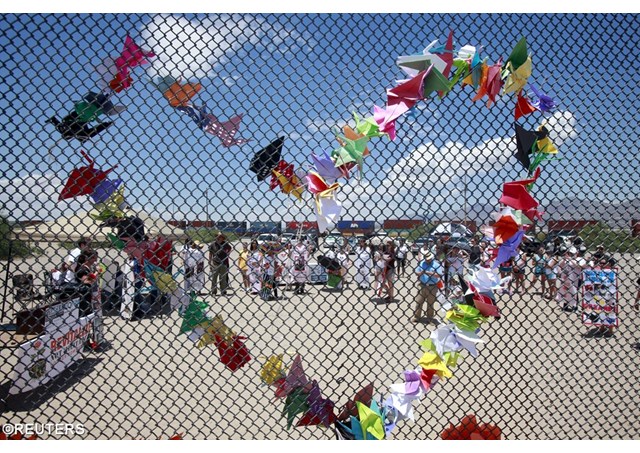
Parish priest from El Paso: 'Migrants are not a burden'

(Vatican Radio) Monsignor Arturo Bañuelas serves as parish priest at St Marks’ in El Paso Texas. Living right across the border from Ciudad Juarez, like many others in his diocese, he's involved in the pastoral ministry to migrants. A ministry which goes beyond the physical needs of those who reach El Paso: “ We try to be a family for them while they’re separated from their loved ones, we also celebrate with them most of our cultural traditions, it’s a very rewarding ministry...”
Listen to Monsignor Arturo Bañuelas of El Paso speaking to Veronica Scarisbrick about issues relating to migration:
El Paso, Monsignor Bañuelas goes on to say, is a place where all the myths relating to immigrants are challenged. For migrants are perceived here not as a burden to society but as a blessing.
Asked by Veronica Scarisbrick whether the trend for migration has undergone an evolution because of the financial crisis in the United States coupled with the improvement of the economic situation in Mexico, Monsignor Bañuelas confirms that there are currently more Mexicans returning home than those entering the United States. There are several reasons for this he says: ‘..among these the declining economic opportunities for immigrants and deportations fueled by anti- immigrant rhetoric’. Another reason that plays into this, Monsignor Bañuealas adds, is the impossibility for immigrants to be joined by their family members.
But while Mexicans are returning home, immigrants from Central America are now arriving in great numbers, crossing Mexico to reach ‘El Norte’ in an effort to flee violence and poverty in their home countries. Among these many are unaccompanied minors, those who manage to avoid predation on the part of the drug lords as they cross Mexico. Monsignor Bañuelas explains how the majority of immigrants from Central America are mothers and children who've endured harsh journeys battling cold and hunger and the fear of being caught by gangs along the way.
Asked if he believes more could be done to help alleviate the plight of these people, Monsignor Bañuelas replies that there needs to be a serious, just and comprehensive immigration reform that enables people to migrate without all the difficulties relating to paperwork. Sometimes, he specifies, it can take up to eighteen years to become legally present in the United States’.
The stepping up of this legal process would avoid, he affirms, the culture and sub-culture of people living in hiding with the looming fear of being deported. But beyond reform, he specifies, there also needs to be some kind of negotiated treaty between nations, both bi-national or multi-national, as well as solutions to combat poverty and crime in the home countries of these people.
| All the contents on this site are copyrighted ©. |


